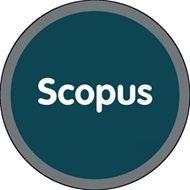A Model of Extreme Poverty Reduction to Prevent Social Inequality in Indonesia Perspective of Sociology and Islamic Law
DOI:
https://doi.org/10.30631/alrisalah.v23i2.1429Keywords:
Keywords: Poverty Alleviation, Social Inequality, Sociology, Islamic Law., Kata Kunci: Pengentasan Kemiskinan, Kesenjangan Sosial, Sosiologi, Hukum Islam.Abstract
Abstract: Poverty alleviation and social inequality in Indonesia is a very complex issue overall in various regions in Indonesia Extreme poverty alleviation refers to deliberate efforts aimed at reducing or eliminating extreme poverty, which relates to circumstances in which individuals or households live below the poverty line is so small that they cannot meet their basic needs to survive. This study aims to analyze the extreme poverty alleviation model to prevent social inequality in Indonesia from the perspective of Islamic sociology and law and focuses on reviewing these problems through the perspective of sociology and Islamic law. The qualitative research method is descriptive. Source of data obtained through the official website, mass media, journals, regulations, and books. The data analysis technique uses the Nvivo 12 plus analysis technique which uses the crosstab feature. The results of the study show that the extreme poverty alleviation model that is applied is budgeting and collaboration. Poverty alleviation to prevent social inequality in Indonesia has been carried out by the Government of Indonesia to reduce the poverty rate to 0 percent in the following year. Poverty alleviation in Indonesia through the budgeting system requires the implementation of well-structured and sustainable strategies. Budgeting and collaboration between government and society play an important role in allocating appropriate resources for initiatives and policies aimed at reducing or eliminating extreme poverty.
Keywords: Poverty Alleviation, Social Inequality, Sociology, Islamic Law.
Downloads
References
Bibliography
Adi Wisnutama, Joko Pramono, Aris Tri Haryamto. “ANALISIS STRATEGIS PROGRAM PENANGGULANGAN KEMISKINAN EKSTREM KABUPATEN MADIUN TAHUN 2022.†Concept and Communication 12, no. 2 (2023): 148–159.
Akhmad Fatikhurrizqi, Bayu Dwi Kurniawan. “The Role of Social Assistance in Alleviating Extreme Poverty in East Java in 2020†2020 (2020): 1027–1036.
BPS. “Jumlah Dan Persentase Penduduk Miskin Indonesia.†Last modified 2023. https://databoks.katadata.co.id/datapublish/2023/07/17/penduduk-miskin-indonesia-berkurang-pada-maret-2023-terendah-sejak-pandemi.
Hapsoro, Nur Arief, and Kresensia Bangun. “Perkembangan Pembangunan Berkelanjutan Dilihat Dari Aspek Ekonomi Di Indonesia.†Lakar: Jurnal Arsitektur 3, no. 2 (2020): 88.
Iva Faulana, Indri Murniawaty, Rusdarti. “MODEL PENGENTASAN KEMISKINAN MELALUI KEBIJAKAN PKH DI JAWA TENGAH.†Oikos: Jurnal Kajian Pendidikan Ekonomi dan Ilmu Ekonomi V, no. 1 (2021): 6.
Kompas.com. “Dampak Kesenjangan Sosial,†2021. https://www.kompas.com/skola/read/2021/10/26/140000369/contoh-dampak-kesenjangan-dalam-bidang-sosial-dan-ekonomi.
Li, Guie, Liyun Chang, Xiaojian Liu, Shiliang Su, Zhongliang Cai, Xinran Huang, and Bozhao Li. “Monitoring the Spatiotemporal Dynamics of Poor Counties in China: Implications for Global Sustainable Development Goals.†Journal of Cleaner Production 227 (2019): 392–404. https://doi.org/10.1016/j.jclepro.2019.04.135.
Republik Indonesia. Instruksi Presiden Republik Indonesia Nomor 4 Tahun 2022 Tentang Percepatan Penghapusan Kemiskinan Ekstrem. Instruksi Presiden Republik Indonesia Nomor 4 Tahun 2022 Tentang Percepatan Penghapusan Kemiskinan Ekstrem, 2022.
Ruja, I Nyoman. “Kemiskinan Dan Perubahan Sosial: Sebuah Model Transformasi Pemberdayaan Masyarakat Di Indonesia.†Jurnal Ilmu Sosial dan Humaniora 11, no. 3 (2022): 572–579.
Sujai Tayudin, Muhamad Husein Maruapey, Rusliandy. “ANALYSIS OF POPULATION GROWTH ON SOCIAL GAP IN COMMUNITY PERSPECTIVE.†Administratie: Jurnal Administrasi Publik 5 (2022): 89–96.
Sutarto, Dendi. “IMPLEMENTATION OF THE VALUE OF DEMOCRACY AS A SOLUTION FOR POVERTY ALLEVIATION AND SOCIAL GAP.†journal.unrika.ac.id 1, no. 1 (2019): 75–86. https://journal.unrika.ac.id/index.php/petita/index.
tnp2k. “Streamlining Extreme Poverty Elimination Program Interventions,†2023. https://www.tnp2k.go.id/articles/streamlining-extreme-poverty-elimination-program-interventions.
Ulfa, Khalida, Muchamad Zaenuri, Dian Eka Rahmawati, Saddam Rassanjani, Mukhrijal Mukhrijal, and Ayu Imanullah. “Branding Strategy ‘The Light Of Aceh’ Through E-Tourism On Sustainable Tourism Development in Aceh Province.†Journal of Governance and Public Policy 8, no. 3 (2021): PROGRESS.
Wahyudi, Riki, Yulian Fauzi, and Jose Rizal. “ANALISIS KEMISKINAN EKSTREM PROVINSI BENGKULU MENGGUNAKAN METODE GEOGRAPHICALLY WEIGHTED REGRESSION ( GWR ) DENGAN PEMBOBOT ADAPTIVE GAUSSIAN KERNEL DAN ADAPTIVE BI-SQUARE†8, no. 2 (2023): 134–149.
Wapresri.go.id. “Kaji Program Percepatan Penghapusan Kemiskinan Ekstrem, TNP2K Dan IBER Gelar Diskusi Forum Akademisi,†2022. https://www.wapresri.go.id/kaji-program-percepatan-penghapusan-kemiskinan-ekstrem-tnp2k-dan-iber-gelar-diskusi-forum-akademisi/.
Downloads
Published
How to Cite
Issue
Section
License
Copyright (c) 2023 Khalida Ulfa

This work is licensed under a Creative Commons Attribution-ShareAlike 4.0 International License.

This work is licensed under a Creative Commons Attribution-ShareAlike 4.0 International License.








